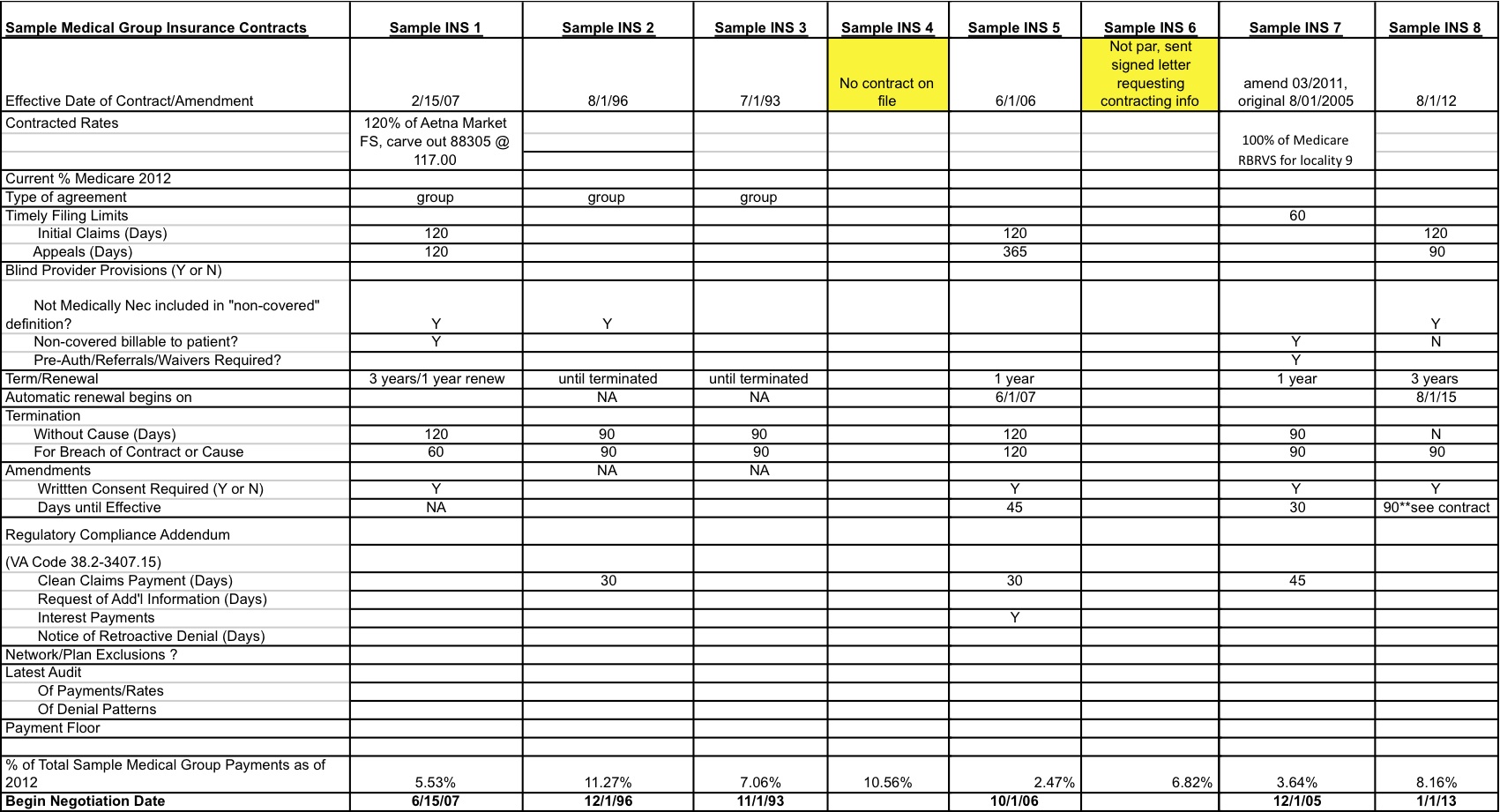

A Managed Care Contracting Plan for Independent / Outreach Labs
Or How to stay profitable even if Medicare cuts your rates
Part One
January 2013
Management Home Page
By Mick Raich, President, Vachette Pathology
This is a two part series to review the concept of renegotiating or negotiating managed care contracts for independent and outreach labs. Part One will cover the strategy and preparation of this process. Part two will cover implementation and completion of this process.
The recent changes in the Medicare fee schedule will make owning and operating an independent lab more difficult. The payment cuts will decrease revenue. Many lab managers are wondering if their managed care contracts will follow suit and offer the same decline in payments. The answer is yes. If you do nothing, expect your entire revenue stream to decrease by 33% by March of 2013. If you are proactive and aggressive you can minimize this damage and only take this cut in the Medicare payer area not your entire financial mix.
How do I acquire or renegotiate managed care contracts for my independent or outreach lab? This is the most frequent question I hear. I get calls every year with this question. My question back to these clients is simple; what are you doing right now?
Most labs do not have an active business plan let alone a managed care plan. This plan takes time and effort. I have had several labs over the years state that doing this was ďtoo much work.Ē These labs are destined to fail.
The labs that will survive will have a managed care plan; they will spend time and money to defend and build these contracts and will be able to show both value and quality to their managed care partners.
Renegotiating these contracts starts with a simple move. Gather all your contracts. Make sure you have every contract that you accept. This means having these contracts on hand and scanned into a system. Every contract should have a signature page. Build a simple template for these contracts so you can get an overview of where you are with each contract at any given time. This template could look like this:

Next sit with your group and ask some tough questions. For example it is imperative that the managed care strategy fit into the groupís overall five year business plan. Remember you should "begin with the end in mind." Knowing your lab's business strategy will help with your managed care strategy. These two concepts are interwoven completely.
After this step you have to carefully and thoughtfully consider what leverage you have in this negotiation. If you say you have no leverage I would argue that you havenít prepared correctly. Every lab has some unique and genuine attributes. It is your job to know these as they are the foundation of your leverage and your benefits and features.
Although it may be difficult, you have to find a way to show your lab's value. This means discussing your publications. You should have every article that you and your partners have ever published ready to present. Have all your community projects ready to present. This means all town or local committees, board memberships, PTA, library, coaching positions etc. Itís imperative that you show you are part of the local community. If you are involved in any local hospital projects these need to be noted.
Be prepared to show and present your quality control plan; note your quality and processes and how you maintain standards that are higher than the basic requirements. If you have a bar code system be prepared to show how this works and why it helps prevent errors. Build a graph that shows your lab process and TAT. Note how your referring physicians get a 24 hour TAT on their cases. Be prepared to explain why this is important. Have a story about a patient and how your diagnosis helped ease his/her mind.
Have your CVís ready - you must show your schooling and your training. Make sure to note any specialty training your group has. Remember you must be able to explain how this helps insurance plans and their enrollees. List all your hospital and university affiliations. All these should be presented and explained.
Have a plan to outline your accessibility. Note that all your referring physicians have your cell phone numbers, show them your business cards, and be prepared to explain how this helps your referring physicians. Detail out the effectiveness of your EMR and how it allows your customers to access their cases and makes the patient process more efficient. Finally get some letters of reference. Have some of the big referring physicians write letters noting your quality and their desire to work with you.
This process takes time you must be willing to commit time and money to keep your lab profitable and to make these changes. I have had several labs tell me that this process is too costly and too time consuming. This reminds me of the hospital based pathologists who simply will not put in extra time with their health systems and then are terribly upset when the Part A is cut. The answer is very simple - those that work harder get more. We will see this take place in the lab world. Strong proactive labs that control costs and show value will survive and those that cannot or will not will fail.
.
Mick Raich is the President and CEO of Vachette Pathology, the nationís leading pathology and laboratory auditing and managing firm. He can be reached at 517-486-4262 or visit http://www.vachettepathology.com.